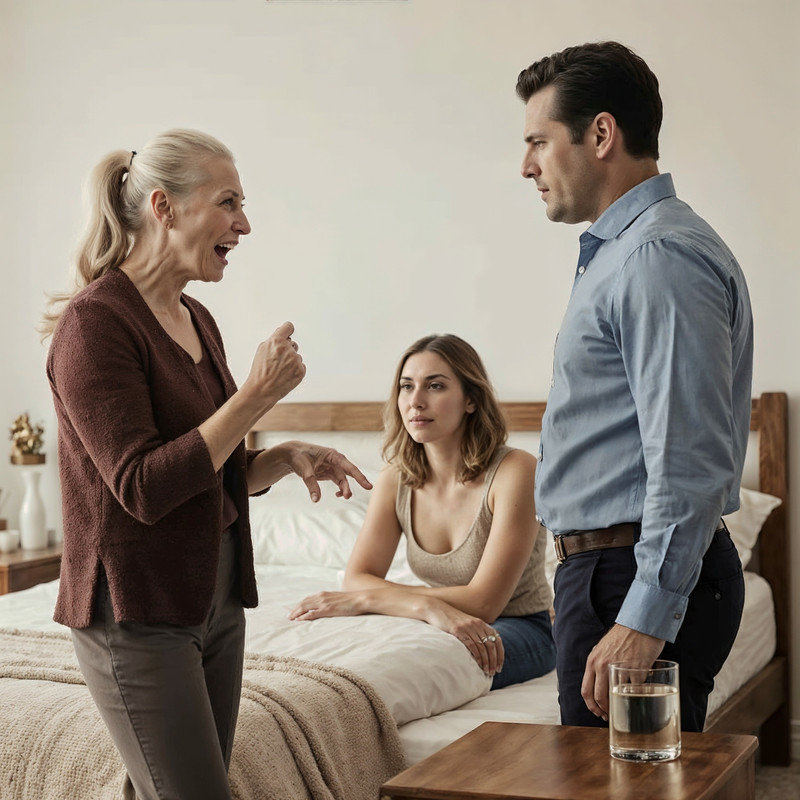The moment everything changed
I once believed that love could heal anything. At twenty-five, I walked into marriage full of hope, convinced that family meant patience, understanding, and shared strength. But over time, I learned that love without kindness is not love at all—it’s a quiet erosion of spirit.
One autumn evening, my body burned with a fever that climbed to 104°F. My head throbbed, my vision blurred, and I could barely lift myself from bed. When my husband, Mark, came home, the first thing he asked wasn’t how I felt—it was why dinner wasn’t ready.
“I’m really sick, Mark,” I said softly. “Can we just rest tonight? I’ll cook tomorrow.”
Instead of concern, his tone hardened.
“So, what do you even do all day if you can’t manage dinner?”
That moment pierced me deeper than the fever ever could. I realized the man I married saw my worth only in what I did for him, not in who I was. That night, as I lay trembling under the blankets, I understood something vital—my health, my peace, and my dignity mattered more than keeping a broken home together.
Finding courage in silence
By morning, my fever had eased, but my heart was clear. I printed the divorce papers I had once been too afraid to sign. My hands shook as I placed them on the table. When Mark walked in, I looked straight into his eyes and said, “I can’t live like this anymore. I’m leaving.”
Before he could answer, his mother, Mrs. Patterson, appeared from the kitchen. Her voice cut through the air.
“You can’t walk out. If you leave, you’ll have nothing. You’ll be on the streets.”
Her words tried to wound me, but they no longer held power. I met her gaze and said quietly, “Starting over with nothing is still better than staying where there’s no respect.”
For the first time, the house fell completely silent. I packed a single suitcase and stepped out the door—my pulse racing, but my spirit free.
Rebuilding from the ground up
Those first weeks were hard. I moved into a small studio apartment with one window that let in the morning light. I took two part-time jobs and lived simply, but every day I felt my strength return.
I learned to cook for myself, to walk to work with my head high, and to take care of my health without anyone questioning my worth. My friends checked in, my coworkers offered support, and slowly, laughter began to find its way back into my life.
There were moments of exhaustion, yes—but also moments of pride. Each step was proof that I could build a new record of resilience, a higher version of myself. I wasn’t someone’s wife anymore—I was a woman who had chosen peace over fear.
How life turned around
Time has a way of revealing truth. Word spread about how Mark had treated me, and the image his family once protected began to crumble. People stopped visiting their store; neighbors who once looked away started to understand.
Meanwhile, my life began to bloom again. I started saving money, focusing on my future, and taking care of my well-being. My days were quieter but filled with meaning. I didn’t have a big house or luxury, but I had something far more precious—peace of mind and self-respect.
Sometimes, I’d think back to that feverish night. It had been the lowest point of my life, yet it became the turning point that set me free.
What freedom really means
One afternoon, a friend asked me, “Do you ever regret ending your marriage?”
I smiled and said, “Not even for a second. The only thing I regret is waiting so long to choose myself.”
Today, I’m stronger, calmer, and more grateful than ever. I’ve learned that a healthy life begins with a healthy heart—and that real family isn’t built on fear or control, but on love, respect, and kindness.
Conclusion
Walking away from a painful chapter was not the end of my story—it was the beginning. When I signed those papers, I didn’t just end a marriage; I reclaimed my freedom, my dignity, and my health. Life may not have turned out the way I once imagined, but in choosing peace over fear, I finally became the woman I was always meant to be.
